The best way to protect your eyes from harmful blue light emitted by your phone’s screen is to use a blue light filter. There are many different filters available, including those that attach to your phone or that you can buy separately. Make sure to install the filter before using your phone in bright light and to remove it when you’re not using your phone. You can also wear protective eyeglasses when using your phone.
Preface
Many people use their phones all the time and don’t realize that they are constantly exposing their eyes to harmful light. The light from a phone screen is especially harmful to your eyes and can cause serious damage if you are not careful.
There are a few ways to protect your eyes from the light from your phone screen. You can buy a screen protector to put on the screen of your phone. This will help to reduce the amount of harmful light that is coming into your eyes. You can also use a phone case that has a screen protector built in. Another option is to use a shade on your phone. This will help to block out the light from your phone screen and protect your eyes.
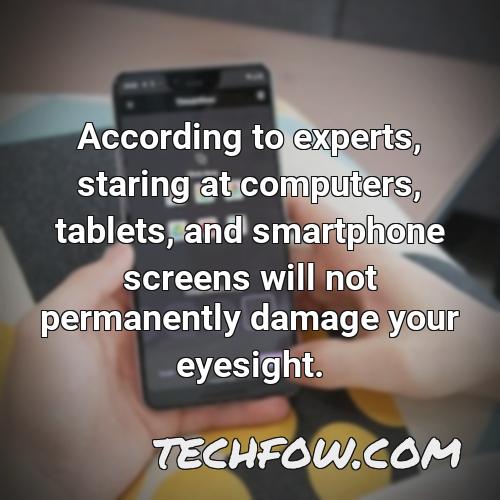
Do Phone Screens Damage Your Eyes
According to experts, staring at computers, tablets, and smartphone screens will not permanently damage your eyesight. However, doing so can cause some bothersome side effects, most notably computer vision syndrome (also called digital eye strain). Symptoms of this syndrome can include pain and discomfort in the eyes, blurred vision, and headaches. While staring at screens for too long can lead to these complications, staring at screens for a short period of time is not harmful. In fact, it is recommended that people take breaks occasionally to avoid fatigue and eyestrain.
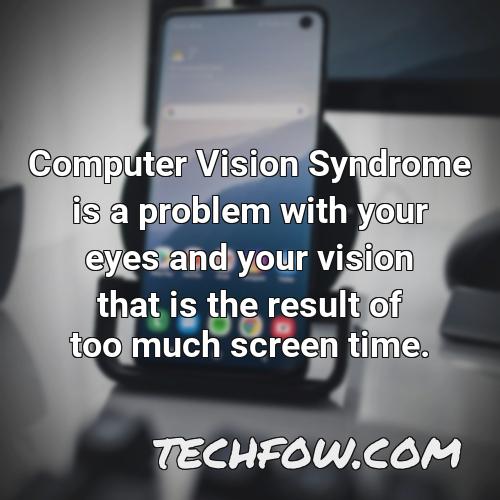
How Many Hours of Mobile Usage Is Safe for Eyes
The use of screens in general, and mobile devices in particular, has become an integral part of many people’s lives. Many people believe that the use of screens is safe, and that the hours they spend on screens each day are not harmful. However, there is evidence that the use of screens can have negative effects on people’s eyes.
The American Academy of Ophthalmology (AAO) ecommends that people limit their screen time to no more than 1 to 2 hours per day. The AAO also recommends that people take regular breaks from screens to limit their exposure to light. This is because screens emit a lot of light, and this light can be harmful to people’s eyes.
Other organizations, like the World Health Organization (WHO), recommend even stricter limits on screen time. The WHO recommends that people limit their screen time to less than 1 hour per day. They also recommend that people take regular breaks from screens to limit their exposure to light.
There is evidence that the use of screens can have negative effects on people’s eyes. For example, screens can cause eye fatigue and eyestrain. Screen time can also lead to problems like dry eyes and eyestrain. In addition, screens can increase the risk of developingeye problems like macular degeneration and glaucoma.
According to the AAO, the best way to limit the damage that screens can do to people’s eyes is to put a daily time limit on screen time, and make that time limit clear. Many people also recommend setting up no-device areas, like the dining room and kitchen, where no one (adults included) an use their devices.
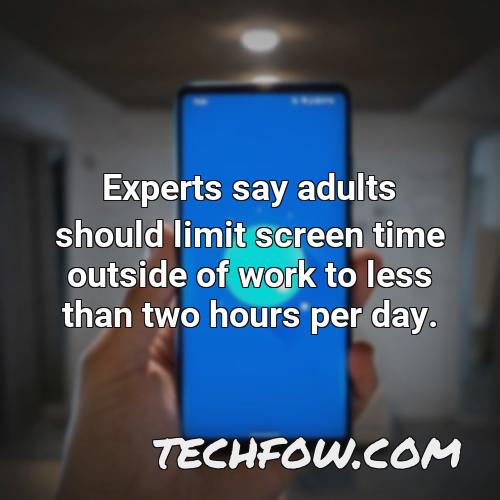
How Many Hours Should I Use My Phone
Experts say adults should limit screen time outside of work to less than two hours per day. Any time beyond that which you would typically spend on screens should instead be spent participating in physical activity. This means that adults should use their phones for an hour or less per day. If you are someone who spends more time on your phone than that, then you should try to spend more time outside of screens and less time on your phone.
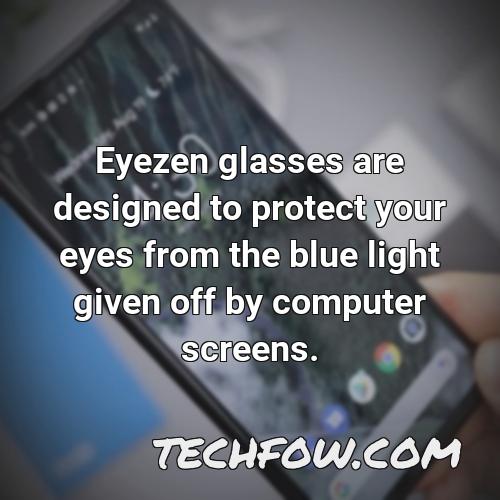
Which Glass Is Best for Eye Protection
Eyezen glasses are designed to protect your eyes from the blue light given off by computer screens. They can help you see your screen more clearly, whether it be on a computer, tablet, or smartphone. Eyezen lenses are also made to protect your eyes from other harmful elements of computer use, such as dust and dirt.
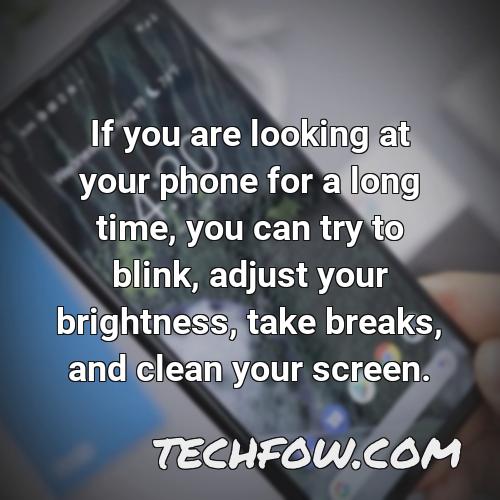
Why Do My Eyes Get Blurry After Looking at My Phone
Computer Vision Syndrome is a problem with your eyes and your vision that is the result of too much screen time. When you look at your phone, your eyes are doing a lot of work. They are trying to focus on the phone, the screen, and the things around it. This can cause your eyes to get blurry. There are things you can do to help prevent CVS. For example, you can wear glasses when you are using your phone. You can also use a phone that doesn’t have a screen.
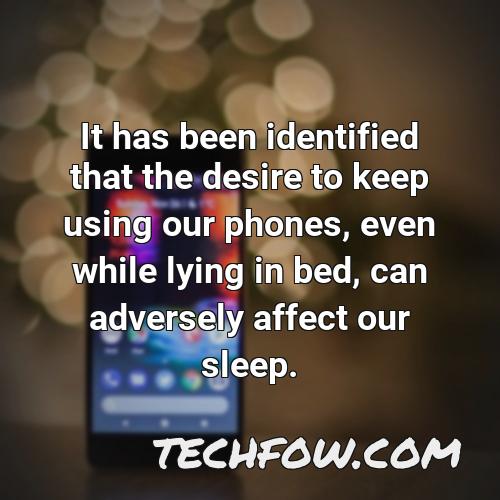
What Happens if You Spend 12 Hours on Your Phone
If you spend 12 hours on your phone, you’re not just wasting your time, you’re also harming your mental and physical health. According to a study published in The Lancet Psychiatry, prolonged screen time has negative effects on our social interactions, mental health, and brain chemistry.
Prolonged screen time has been linked to depression, insomnia, and anxiety. These issues can lead to decreased productivity, social isolation, and even death. For example, people who spend more than five hours a day on their phone have been shown to have a 60% increase in risk of suicide.
In addition to mental health problems, prolonged screen time has physical consequences as well. According to the study, prolonged screen time has been linked to a decrease in physical activity and an increase in weight. It has also been shown to decrease our ability to concentrate and remember information.
So, what can you do to avoid these negative effects? First and foremost, make sure to set limits on how much phone time you spend each day. Secondly, try to spend more time outside and interacting with other people. And finally, make sure to use your phone in moderation: spend no more than one hour a day on your phone and only use it for essential activities.
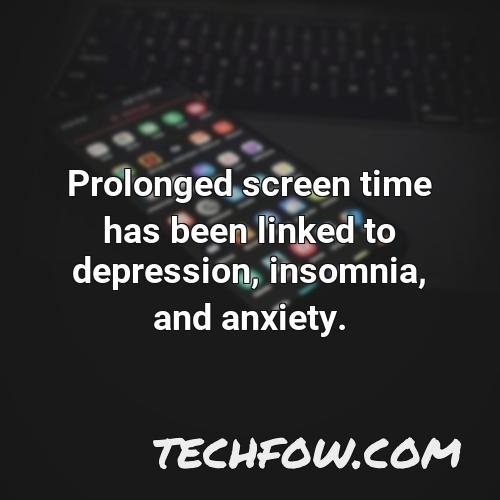
How Do I Stop My Phone From Getting Blue Light
* You can find the filter under Settings > Display.
-Look for an option for Night Light or Blue Light filter and turn it on.
-In most cases there should be a way to schedule the feature and adjust the color temperature to your liking.
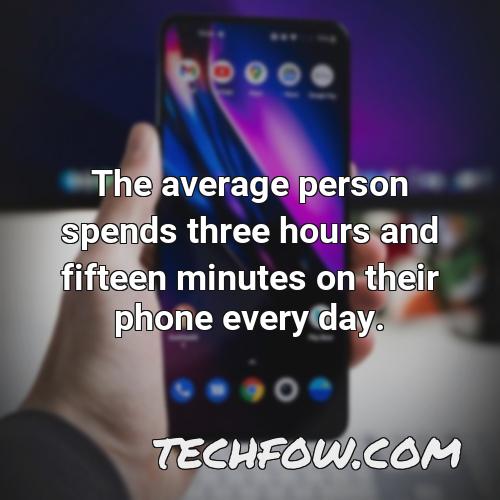
Does Lying Down Your Phone Damage Your Eyes
It has been identified that the desire to keep using our phones, even while lying in bed, can adversely affect our sleep. This is because the eyes are constantly being exposed to bright light, which can cause temporary vision loss and can lead to sleep deprivation. If you find that you are having difficulty sleeping because of your phone use, it may be best to reduce or stop using your phone altogether in order to get the best night’s sleep.
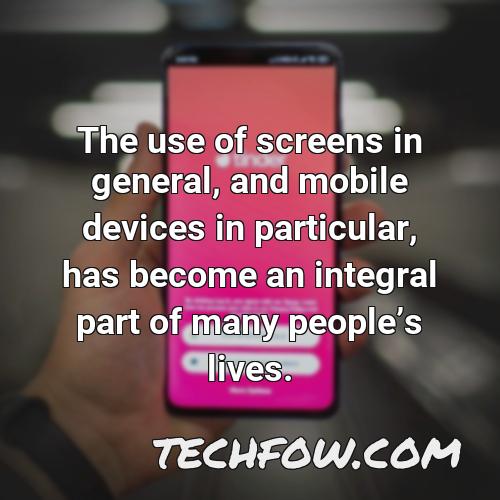
How Far Away Should Your Phone Be When You Sleep
When it comes to reducing your exposure to radiation, it is important to follow some simple guidelines. Your phone should be at least three feet away from your bed to limit exposure to radiofrequency energy. If you need to use your phone as an alarm, turn on airplane mode to prevent it from sending or receiving calls and text messages. During the day, carry your phone in a purse or bag, rather than in your pocket. Additionally, be sure to use a case or cover when possible to reduce the amount of radiation that is being absorbed by your phone.
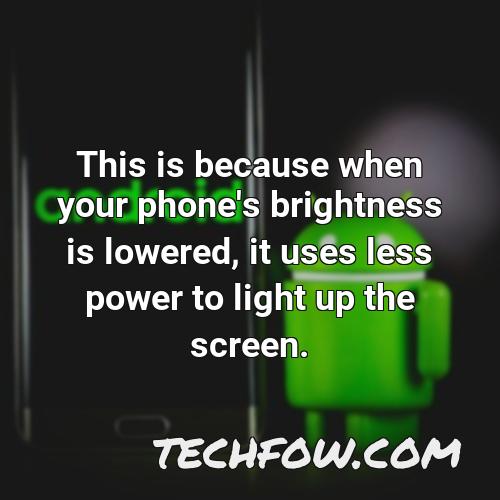
What to Do After Watching Phone for a Long Time
If you are looking at your phone for a long time, you can try to blink, adjust your brightness, take breaks, and clean your screen.
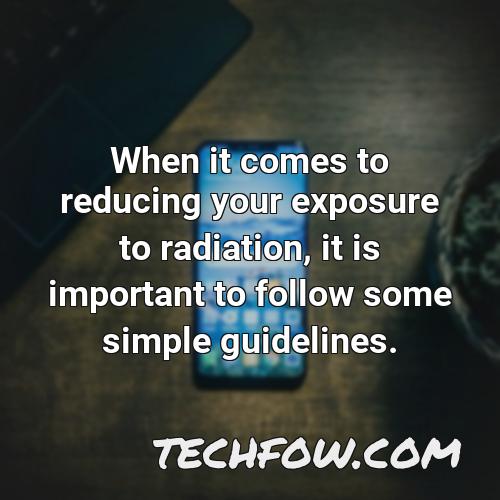
What Is a Normal Phone Screen Time
The average person spends three hours and fifteen minutes on their phone every day. This is according to research from RescueTime, one of several apps for iOS and Android created to monitor phone use. The top 20% of smartphone users spend upwards of four and a half hours on their phones every day.
There are many benefits to spending time on our phones. For one, it can help us relax and destress. Additionally, it can help us stay productive and organized. However, there are also some risks associated with phone use. For example, it can give us anxiety and depression symptoms. Additionally, it can lead to addiction and a lack of focus.
There are a number of ways that we can reduce the time that we spend on our phones. For example, we can set limits on how long we can spend on our phones each day. We can also try to use our phones for specific purposes, such as talking to friends and family, rather than using them for entertainment purposes.
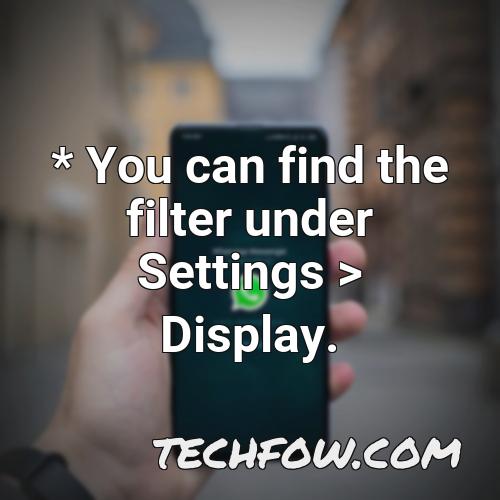
How Much Brightness Is Good for Eyes in Mobile
1) The brightness of a mobile device should be equivalent to the light surrounding you.
2) The brightness of a mobile device should be low enough so that the light’s radiance is similar.
3) The brightness of a mobile device should be low enough so that your eyes can adjust to it.
4) The brightness of a mobile device should be high enough so that you can see the screen.
5) The brightness of a mobile device should be high enough so that you can see the text on the screen.
6) The brightness of a mobile device should be high enough so that you can see the icons on the screen.
7) The brightness of a mobile device should be high enough so that you can see the pictures on the screen.
Does Using Dark Mode Save Battery
The study found that if you keep your OLED phone’s brightness level around 30%-50%, you can expect only around 3% to 9% of power savings. However, if your phone’s always at 100% brightness, the dark mode will save you around 39% to 47% of your battery. This is because when your phone’s brightness is lowered, it uses less power to light up the screen.
Last but not least
To protect your eyes from blue light emitted from your phone’s screen, you can use a blue light filter or wear protective eyeglasses.

